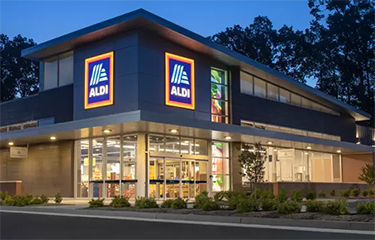Aldi U.S. recently announced its acquisition of about 400 Winn-Dixie and Harveys Supermarket stores, highlighting the increasing trend of shoppers seeking out discount groceries as a response to inflation.
Aldi signaled the acquisition might also just be the start for the chain, as it may looking to make other grocery acquisitions in the near future, Insider Intelligence Analyst Rachel Wolff told SeafoodSource.
Earlier this year, Batavia, Illinois, U.S.A.-based Aldi U.S. announced plans to add 120 new stores this year to reach a total of more than 2,400 by the end of the year. With its acquisition of 400 Winn-Dixie and Harveys Supermarket stores as part of a larger divestiture of Southeastern Grocers to certain entities, the company has widened its reach even further.
“The time was right to build on our growth momentum and help residents in the Southeast save on their grocery bills,” Aldi CEO Jason Hart said in a press release. “Like Aldi, Winn-Dixie and Harveys Supermarket have long histories and many loyal customers in the Southeast, and we look forward to serving them in the years to come.”
Aldi will operate Winn-Dixie and Harveys Supermarket stores – located in the U.S. states of Alabama, Florida, Louisiana, and Mississippi – “with the same level of care and focus on quality and service” that they had previously, Hart said.
Aldi executives will evaluate which locations will be converted to the Aldi format to “better support the neighborhoods we’ll now have the privilege of serving,” Hart added. “For those stores we do not convert, our intention is that these continue to operate as Winn-Dixie and Harveys Supermarket stores.”
Despite many retailers shuttering stores due to the strain of inflation and other difficult economic factors, Aldi is “doubling down on expansion plans, supporting its position as one of the fastest-growing grocers in the country,” Aldi said.
Aldi’s acquisition of Winn-Dixie “makes perfect sense,” as the company embarks on an “aggressive expansion plan to win share in the competitive grocery sector,” Wolff said. “It could also signal more acquisitions to come, including potentially some of the stores Kroger and Albertsons are trying to offload to get their merger approved by the FTC."
Aldi has invested USD 2.5 billion (EUR 2.3 billion) in the Southeast U.S. since the mid-1990s and opened a distribution center and regional headquarters in Loxley, Alabama, last year.
Aldi is also a major seller of frozen, refrigerated, and shelf-stable seafood, which has recently led to the chain actively negotiating settlements in two lawsuits alleging the brand made false sustainability claims for some of its seafood products.
In May 2021, a class-action suit brought against Aldi by Jessica Rawson in the U.S. District Court for the Northern District of Illinois alleged the retailer made deceptive sustainability claims in its marketing. Specifically, Rawson claimed certain fresh Atlantic salmon products contained the phrase “Simple. Sustainable. Seafood” despite stemming, at least in part, from Chile, which has an “avoid” recommendation from the Monterey Bay Aquarium Seafood Watch sustainability ratings system.
Photo courtesy of Aldi







